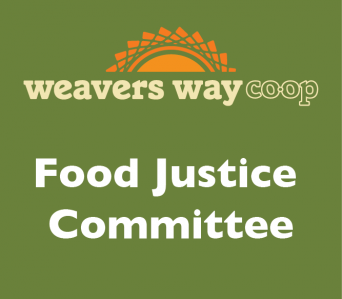
Part 1 of 4: Talking About Food For All
The Food For All program at Weavers Way enables members who receive assistance (SNAP, TANF, General Assistance, WIC, Medicaid, SSI/SSDI, or military disability) to receive an additional 10% discount on nearly all products in our stores. FFA participants represent a diverse spectrum of our community in terms of ethnicity, age, gender, education, and life experiences.
In response to significant member-driven interest, Mimi Kahn and Shaline Webb of the Food Justice Committee interviewed over a dozen FFA shoppers as part of a larger effort to review and improve the program.
All the interviewees expressed great appreciation for FFA. “[It] allows me to buy local, organic, healthy food at affordable prices,” one said.
FFA interviewees were well informed about prices at different stores, including the Co-op, Whole Foods, and Save-a-Lot, and they engaged in purposeful shopping based on what their benefits, prices, and transportation permitted.
“I know what I can afford to buy,” one said. “I look for basic staples, bulk items, sale items, that kind of thing.” As for targeted items, FFA shoppers favored bulk items – oats, lentils, beans, rice, pasta, cereal, and tea – and fresh produce. With many FFA shoppers dependent on public transportation, the proximity of the Mt. Airy and Chestnut Hill stores to bus routes was critical. Furthermore, without a vehicle, some shoppers were unable to purchase frozen or heavy items.
FFA shoppers greatly valued the warmth and welcoming atmosphere of the staff and members. “I love the welcoming atmosphere, the sense of community, and seeing familiar faces,” one program member said. They noted the tight spaces, abundance of expensive foods, and the difficulty with navigating the Mt. Airy store as an individual with a disability.
“It’s off-putting to see all the expensive items like meat, fish, and fancy cheeses that I can’t afford,” one member said. “But I understand that the Co-op needs to meet the needs of different members, and those fancy cheeses probably help pay for my discounted food.”
When specifically asked about the FFA program, interviewees appreciated the reduced member equity and that the FFA discount was not restricted like SNAP or WIC benefits. “Everything can be taken care of online and the discount is attached to your membership, so there’s no need for an additional FFA card,” one member said. “And there’s no feeling of being shamed.”
Participants recommended more in-store signage and online presence about FFA. “You can’t even find it easily on the [Weavers Way] website,” one member commented. They also stressed concerns about transportation, and offered ideas about how members may provide rides to those in need. Lastly, FFA interviewees agreed that greater discounts would allow them to purchase greater amounts and varieties of items.
The Shuttle will feature three more articles in this series in the coming months. They’ll include commentary from Co-op members on food insecurity, an analysis of overarching issues in Philadelphia and Ambler, and paths forward to real change.
If you’d like to participate in this series or in the FFA task force, email the Food Justice Committee at foodjustice@weaversway.coop.
